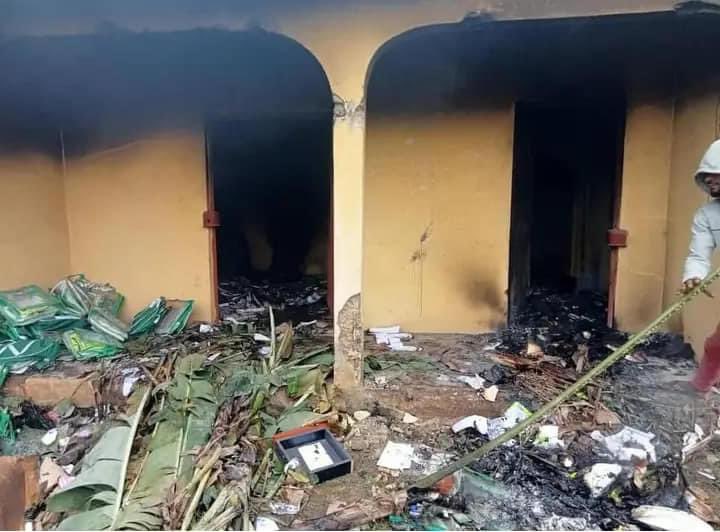Hoodlums recently set fire to the office of the Akwa Ibom State Independent Electoral Commission (AKISIEC) in the Ibiono Ibom Local Government Area, raising concerns about potential disruptions to local government elections in the region. The incident was confirmed by the Akwa Ibom Police Command, which indicated that the attack could be viewed as a targeted effort to interfere with the electoral process. With the elections underway, the attack added a layer of tension to an already sensitive political atmosphere, leading many to speculate about the motivations behind such violence.
Despite the fire, which partially engulfed the AKISIEC office, authorities confirmed that crucial electoral materials remained unharmed. The Police Public Relations Officer, ASP Timfon John, reported that officials were able to continue with the scheduled elections without significant interruption. This news provided some relief to both election officials and voters, who hoped for a smooth electoral process despite the challenges posed by the attack. John’s reassurances were critical in restoring some degree of confidence among the public during this turbulent time.
In response to the attack, the police reinforced security measures around all AKISIEC offices and other strategic locations throughout the state. This proactive approach was intended to deter any further attempts to sabotage the electoral process, demonstrating the authorities’ commitment to ensuring the integrity and security of the elections. The heightened presence of security personnel aimed to provide a safe environment for voters and election workers alike, reinforcing the importance of conducting fair and peaceful elections.
The incident at the AKISIEC office has sparked discussions about the broader implications of such violence in the political landscape of Nigeria. Many observers are concerned that attacks on electoral institutions could discourage voter participation and undermine confidence in the electoral process. This escalation of violence raises questions about the accountability of political actors and the effectiveness of security measures in place during critical democratic exercises.
The local responses to the attack were characterized by a mix of resilience and apprehension. While many voters expressed their determination to fulfill their civic duty by participating in the elections, the incident also highlighted the underlying tensions and challenges that Nigeria faces in maintaining a stable democratic environment. Clearly, the actions of the hoodlums not only disrupted local governance processes but also served as a stark reminder of the volatile nature of political activities in the region.
Looking ahead, the incident further emphasizes the need for a concerted effort to bolster democratic institutions and champion the rule of law in Nigeria. As the elections continue, it is crucial for authorities to remain vigilant and responsive to any threats to the electoral process. By ensuring that such incidents do not recur, there is hope for a more stable and secure environment that upholds the principles of democracy, allowing citizens to exercise their rights without fear of violence or intimidation.














